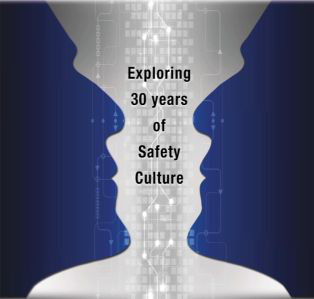Speaker
Synopsis
Direct and root causes of Chernobyl accident have a complex character because many different events having independent origin were happened jointly.
The catastrophe occurred due to systemic combination objective and psychological factors. Each of those factors itself was not source of danger. Human factor influence on the situation was net so much like operative personnel activity result but as activity of many workers on when previous phases of the plant life cycle. Systemic combination of those factors has been intensified their influence.
Chernobyl operative personnel erroneous actions could be classified as a mistake.
Direct cause of the personnel erroneous actions were mistaken understanding of the neutron physical processes being in an active zone of reactor vessel. Theoretically operators could prevent the explosion if they would place faster absorbent rods in five seconds before they pushed “Automatic Defence - 5” button. It is known that human error probability in that conditions, in 5-10 seconds, equals practically 1.
Root cause of the personnel wrong actions were based on a fact that operation regulation provides reactor unit safety. The regulation accepted (not prohibited) those conditions the reactor unit was under before the accident in 1986.
Examination of Chernobyl personnel motivation and attitude characteristics has shown that conflict “Human – Technology - Organization“ could be presented quantitatively like motivation parameter. The conclusion is very important to solve a problem of the operator reliability. It has directed a search for psychological professional fitness criteria to the activity motivation and attitudes quality and also has drawn nearer nuclear unit safety concept and safety culture concept understanding. Operative personnel job descriptions and daily work practice formed attitude to diligence first of all.
Presented approach in psychological analysis of the personnel activity when accident situation is developed by the comparison between personal aspect, cognitive and operational structures and formalized notation about personnel regulation activity.
The researches have shown that individual psychological data of Chernobyl NPP personnel, which could be a direct cause of wrong actions and lead to the accident, were not differ from another nuclear power plant personnel ones.
Analysis of psychological aspects of Chernobyl accident and investigation of plant personnel motivation changes in the accident consequences elimination environment confirm the necessity to develop concept of careful relation to worker. It is necessary to develop psychological support methodology to form human capital both in two aspects: professional personality formation and human resource management.
The history asks the following questions: have the Chernobyl lessons been learned? Are our contemporaries and next generation ready to provide safety in the nuclear power plants? The terrorist attacks, military actions in the states who have nuclear power plants makes more complex problem of nuclear power plant, all mankind safety.
| Country or International Agency | Russian Federation |
|---|

